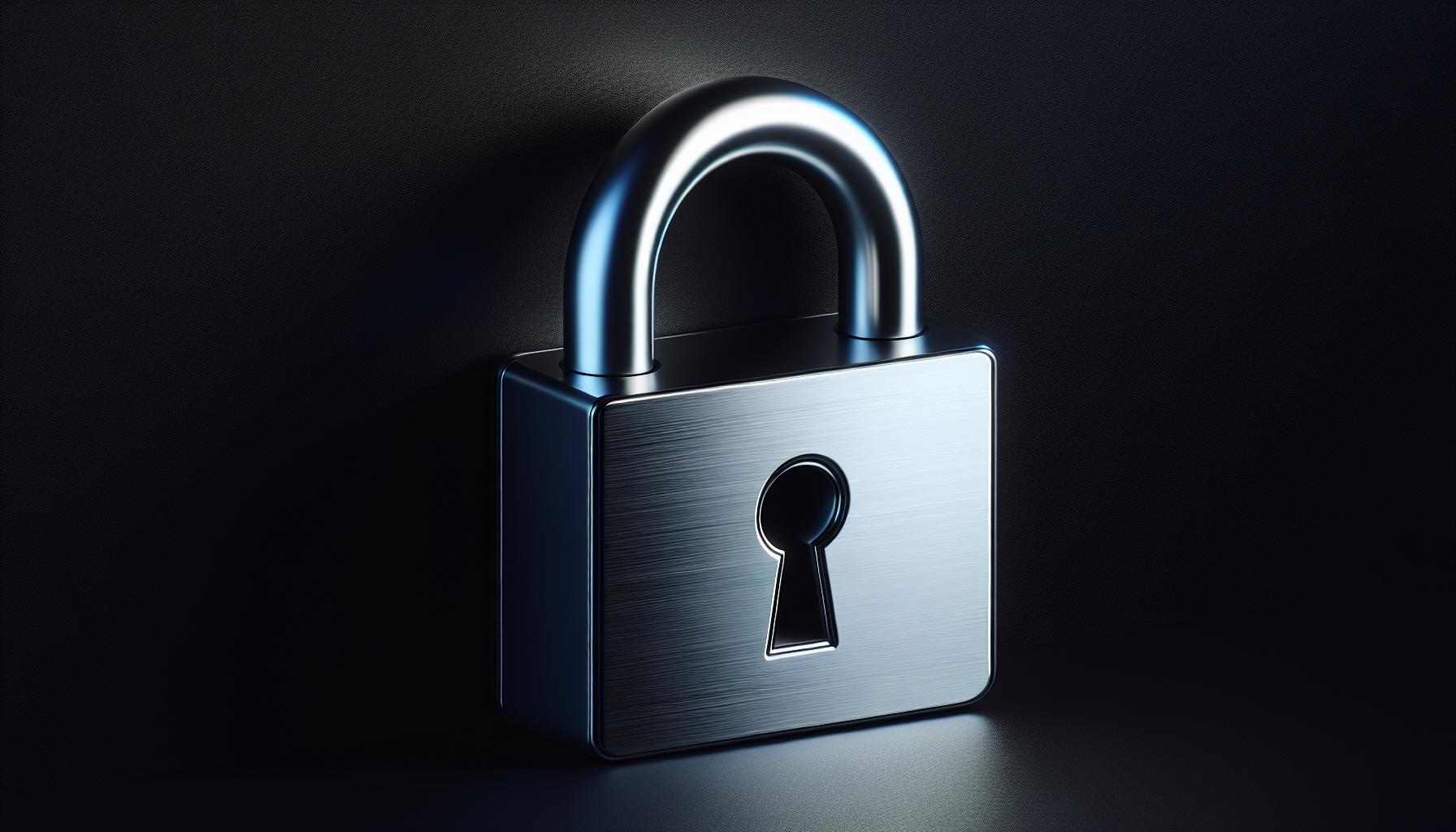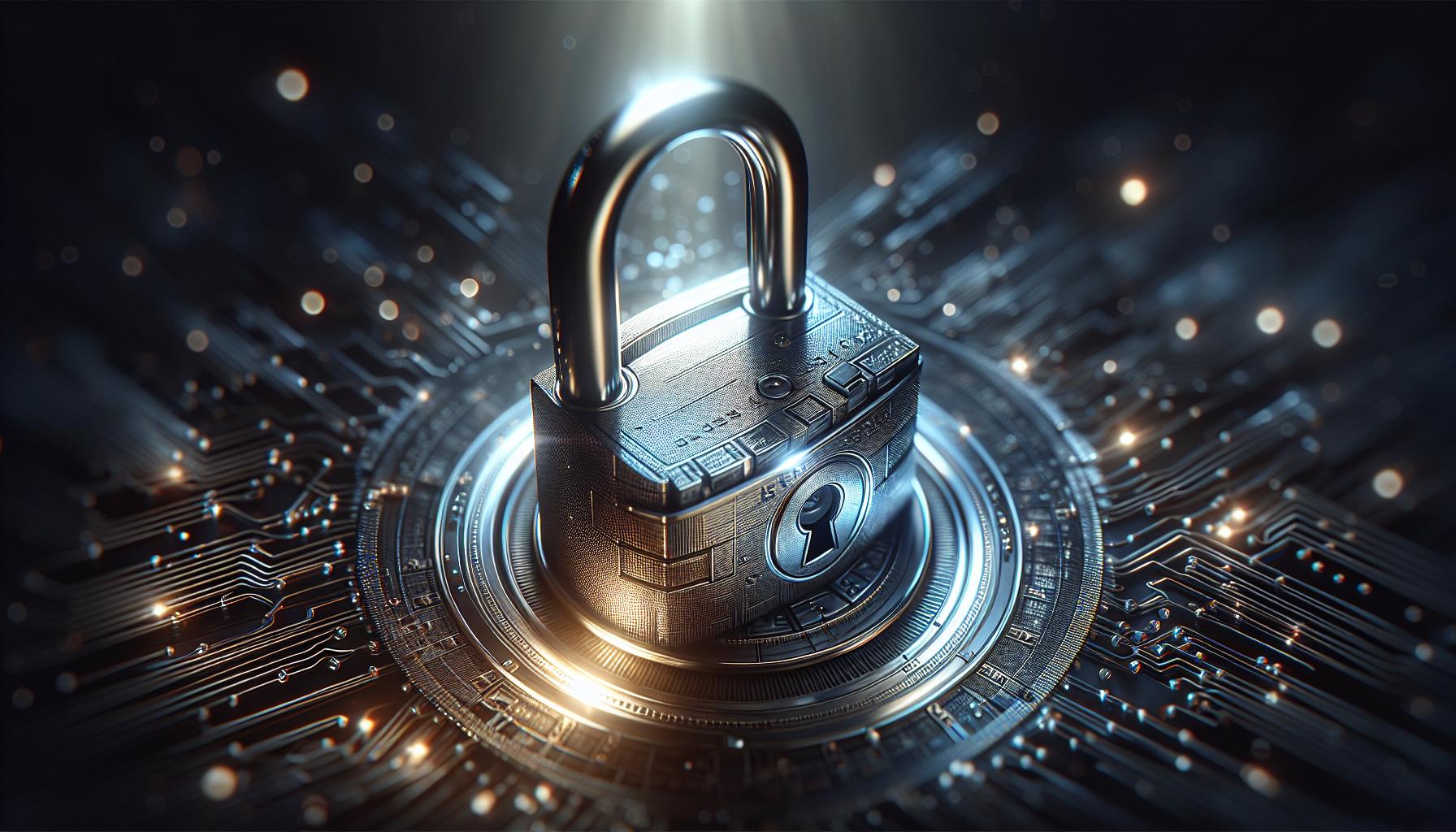Welcome to the world of “No Personal Data,” where privacy is paramount and your personal information is protected. In this digital age, where data breaches and privacy concerns are on the rise, it’s crucial to explore alternative solutions that prioritize your security and anonymity. With “No Personal Data,” you can regain control over your online presence and enjoy a worry-free browsing experience. In this article, we’ll delve into the concept of “No Personal Data” and explore how it can revolutionize the way we interact with technology. So, buckle up and get ready to discover a new era of digital privacy.
In a world where data is constantly collected and exploited, “No Personal Data” offers a refreshing approach. Imagine a digital landscape where you can navigate freely, without the fear of your personal information falling into the wrong hands. With “No Personal Data,” your online activities are shielded, ensuring that your privacy remains intact. In this article, we’ll explore the benefits of this innovative concept and how it can empower you to take control of your digital footprint. So, get ready to embark on a journey towards a safer and more secure online experience.
What is “No Personal Data”?
In this increasingly digital world, where privacy and security concerns are at an all-time high, the concept of “No Personal Data” has emerged as a promising solution. But what exactly does it mean?
“No Personal Data” refers to an innovative approach to online interactions, wherein users are able to enjoy the benefits of technology without compromising their personal information. It revolves around the idea that you can navigate the digital landscape without disclosing any personally identifiable information (PII) or leaving a digital footprint.
Traditionally, when you use online services or browse websites, you are often required to provide personal information such as your name, email, phone number, and even your location. This data is then stored, analyzed, and potentially shared with third parties, leaving you vulnerable to data breaches, identity theft, and intrusive targeted advertising.
The “No Personal Data” concept challenges this status quo by offering a way to interact with technology while protecting your privacy. Instead of revealing personal information, you can use pseudonymous identities or random credentials to authenticate yourself or access services. This approach ensures that no sensitive data is associated with your online activities.
By adopting “No Personal Data,” you can reclaim control over your online presence and enjoy a worry-free browsing experience. It allows you to browse the internet without the fear of your data being mishandled, sold, or misused. Moreover, it helps mitigate the risks associated with digital surveillance and targeted profiling.
In the next sections, we will delve deeper into the benefits of “No Personal Data” and explore how it can revolutionize the way we interact with technology. So, buckle up and discover a safer and more secure online experience without sacrificing the convenience and functionality you’ve come to expect.
The Importance of Digital Privacy
In today’s digital age, privacy has become a significant concern for individuals worldwide. With the exponential growth of technology, our personal data is constantly being collected, stored, and analyzed by various online platforms. This accumulation of personal information puts our privacy at risk, making it crucial to recognize the importance of digital privacy and take necessary measures to protect ourselves.
Data breaches have become all too common, with major companies falling victim to cyberattacks and exposing sensitive user information. These incidents not only lead to financial losses but also to potential identity theft and other forms of malicious activity. It’s vital to understand that your personal data is valuable and needs to be safeguarded.
Moreover, digital privacy is not just about protecting individual information from hackers or unauthorized access. It is also about maintaining control over the information you share online and ensuring that it is only used for its intended purpose. Without proper privacy measures in place, your data can be sold, shared, or used in ways that you never consented to.
By prioritizing digital privacy, you can protect yourself from various risks such as identity theft, tracking, surveillance, and targeted marketing. It gives you the ability to maintain autonomy over your personal information, preventing it from being exploited for profit or other malicious activities.
No Personal Data offers a solution to these privacy concerns. It allows you to interact with technology and online services without compromising your personal information. Instead of providing your real identity, you can use pseudonymous identities or random credentials, ensuring your privacy remains intact. Adopting this concept empowers individuals to take control of their online presence and enjoy a worry-free browsing experience.
Digital privacy has become an essential aspect of our lives in the digital age. Protecting your personal data should be a priority to safeguard not only your financial information but also your overall well-being. By recognizing the importance of digital privacy and exploring innovative concepts like “No Personal Data,” you can regain control over your online presence and enjoy a more secure digital experience.
The Risks of Data Breaches
In today’s digital age, data breaches have become an all too common occurrence. Companies and organizations, big and small, have fallen victim to cyberattacks, resulting in the exposure of sensitive personal information of millions of individuals. Unfortunately, no one is immune to this growing threat.
Data breaches pose significant risks to individuals, including:
- Identity theft: When personal data is compromised in a data breach, it can provide cybercriminals with the necessary information to steal your identity. This can lead to financial loss, damage to your credit score, and even legal complications.
- Financial fraud: Once your personal information is in the wrong hands, cybercriminals can use it to make unauthorized transactions, open new accounts, or apply for loans, putting your financial stability at risk.
- Targeted phishing attacks: With access to personal information, cybercriminals can craft sophisticated phishing emails or messages that seem legitimate, tricking you into sharing more sensitive information or downloading malicious software.
- Reputation damage: A data breach can expose personal information like emails, photographs, or private messages, leading to a breach of trust and potentially damaging your personal or professional reputation.
- Privacy invasion: When your personal data is accessed without your consent, it violates your right to privacy. Data breaches can result in personal information being sold, shared, or used for targeted marketing purposes without your knowledge or permission.
The consequences of data breaches can be far-reaching and long-lasting. Protecting your personal information should be a top priority. By adopting the concept of “No Personal Data,” you can reduce the risk of falling victim to data breaches and regain control over your online privacy.
The Benefits of “No Personal Data”
When it comes to protecting your personal information, the concept of “No Personal Data” offers numerous benefits. By adopting this approach, you can mitigate the risks associated with data breaches and regain control of your online privacy. Here are a few key advantages:
- Enhanced Security: With “No Personal Data,” you minimize the amount of sensitive information that is shared or stored online. By reducing your digital footprint, you significantly reduce the risk of your personal information falling into the wrong hands. This dramatically lowers your vulnerability to identity theft, financial fraud, and other cybercrimes.
- Reduced Targeted Phishing Attacks: Phishing attacks are a common tactic used by cybercriminals to trick individuals into revealing sensitive information. However, with “No Personal Data,” there is less personal information available for attackers to exploit. This makes it significantly more difficult for them to craft convincing phishing emails and scams, effectively reducing the risk of falling victim to such attacks.
- Preserved Reputation: A data breach can have severe consequences for both individuals and businesses. It can damage your reputation, erode trust, and potentially lead to financial and legal repercussions. By adopting “No Personal Data,” you minimize the likelihood of having your personal information leaked or compromised, helping to safeguard your reputation and maintain the trust of others.
- Increased Privacy: In today’s digital world, privacy is a critical concern. With “No Personal Data,” you regain control over your online privacy. By limiting the personal information you share and the data that is stored about you, you can better protect your privacy and maintain a greater level of anonymity in the online space.
- Reduced Exposure to Data Breaches: By adopting the “No Personal Data” approach, you significantly reduce your exposure to data breaches. With less personal information stored online, there is less data for cybercriminals to target. This safeguards your personal and financial information, ensuring that it remains secure and out of reach from potential threats.
These are just a few of the benefits that “No Personal Data” can offer in safeguarding your personal information and reducing the risks associated with data breaches. By adopting this approach and being mindful of the information you share online, you can regain control over your online privacy and protect yourself from the increasing threats in today’s digital age.
How “No Personal Data” Works
No Personal Data is a concept that aims to address the challenges associated with data breaches and online privacy. By adopting this approach, individuals can take control of their personal information and minimize the risks of identity theft, financial fraud, reputation damage, and privacy invasion.
The idea behind “No Personal Data” is simple: limit the personal information that you share and store online. Instead of providing your full name, birthdate, address, and other sensitive details, you can choose to use alternative methods to authenticate yourself and access online services. This can include using a unique username or a pseudonym, along with strong passwords or two-factor authentication.
The primary goal of “No Personal Data” is to reduce the amount of personally identifiable information that is stored and shared across various online platforms and services. This approach can significantly minimize the impact of data breaches, as there is less personal data available to be compromised. By limiting the information available to potential attackers, you effectively decrease the likelihood of targeted phishing attacks and unauthorized access to your accounts.
Implementing “No Personal Data” also helps in preserving your online reputation. By keeping your personal information separate from your online presence, you minimize the risk of being associated with any negative online content or activities. This is particularly important for professionals, who rely on their online reputation for career advancement and business opportunities.
Furthermore, adopting “No Personal Data” principles promotes increased privacy. By limiting the personal information you share, you reduce the chances of your data being exploited for targeted advertising or data mining purposes. It also decreases the likelihood of your personal information being distributed or sold to third parties without your consent.
Overall, “No Personal Data” empowers individuals to regain control over their online privacy and protect themselves from the risks associated with data breaches. By being mindful of the personal information you share and taking steps to limit its exposure, you can significantly enhance your online security and safeguard your personal and financial well-being. So why not start implementing “No Personal Data” principles today?
Taking Control of Your Digital Footprint
In today’s digital age, it’s more important than ever to take control of your digital footprint and protect your online privacy. With the increasing prevalence of data breaches and privacy concerns, adopting the principles of “No Personal Data” can empower you to regain control over your personal information and mitigate the risks associated with sharing and storing personal data online.
By limiting the personal information you share across various online platforms and services, you can significantly reduce the amount of personally identifiable information that is available to potential hackers and cybercriminals. This means minimizing the risk of your personal data being exposed in a data breach, and significantly reducing the chances of becoming a victim of identity theft or other cybercrimes.
Additionally, adopting the “No Personal Data” approach can help in reducing targeted phishing attacks. Phishing attacks often rely on obtaining personal information, such as names, addresses, or financial information, to trick individuals into revealing more sensitive details or falling for scams. By limiting the personal data you share online, you significantly decrease your susceptibility to such targeted attacks.
Taking control of your digital footprint by implementing “No Personal Data” principles also helps in preserving your online reputation. In today’s interconnected world, maintaining a positive reputation is crucial, both personally and professionally. By minimizing the amount of personal information available online, you reduce the chances of sensitive information or damaging content being exposed and potentially harming your reputation.
Furthermore, adopting the “No Personal Data” approach also enhances your overall privacy. By being mindful of the personal information you share and taking steps to limit its exposure, you can enjoy a greater sense of privacy and control over your online presence. This newfound privacy can give you peace of mind, knowing that you are taking proactive steps to protect your personal data and maintain your privacy.
Taking control of your digital footprint by implementing “No Personal Data” principles is essential in today’s digital age. By limiting the personal information you share and store online, you can mitigate the risks associated with data breaches, reduce targeted phishing attacks, safeguard your online reputation, and enjoy increased privacy. Embracing “No Personal Data” empowers you to regain control over your online privacy and take proactive steps to protect yourself from the potential risks of sharing personal information online.
Conclusion
Taking control of your digital footprint and protecting your online privacy is crucial in today’s digital age. The concept of “No Personal Data” offers a solution to mitigate the risks associated with data breaches and privacy concerns. By limiting the personal information shared across online platforms and services, you can reduce the amount of personally identifiable information available to potential hackers and cybercriminals. This approach not only reduces targeted phishing attacks but also helps preserve your online reputation.
Adopting the principles of “No Personal Data” enhances overall privacy and empowers you to regain control over your online privacy. By being mindful of the information you share and taking steps to protect your personal data, you can safeguard yourself from potential privacy breaches and identity theft. Remember, your online privacy is in your hands, and by implementing the “No Personal Data” principles, you can ensure a safer and more secure digital experience.
Protecting your personal information is an ongoing effort, and staying informed about the latest privacy practices and technologies is essential. By prioritizing your online privacy and embracing the “No Personal Data” approach, you can navigate the digital landscape with confidence and peace of mind.
Frequently Asked Questions
What is the importance of taking control of your digital footprint?
Taking control of your digital footprint is crucial because it helps protect your online privacy. By managing the information you share and limiting personal data exposure, you mitigate the risks of data breaches and privacy concerns. It also reduces the chances of becoming a target for phishing attacks and safeguards your online reputation.
What is “No Personal Data”?
“No Personal Data” is the principle of limiting the amount of personally identifiable information shared online. By minimizing the personal information disclosed on various platforms and services, individuals can reduce the risk of data breaches and privacy violations. This approach helps protect online privacy and gives individuals control over their personal information.
How does “No Personal Data” mitigate the risks associated with data breaches?
“No Personal Data” minimizes the amount of personally identifiable information available online, making it more challenging for hackers and cybercriminals to access and exploit sensitive data. By limiting personal information shared across platforms, individuals reduce their exposure to potential breaches and mitigate the associated risks.
How does “No Personal Data” protect against phishing attacks?
Adopting the “No Personal Data” approach minimizes the personal information available to scammers and reduces the likelihood of falling victim to targeted phishing attacks. With less information to use for deception, individuals are less susceptible to manipulative tactics aimed at stealing personal data.
How does “No Personal Data” help preserve online reputation?
By limiting the personal information shared online, “No Personal Data” helps protect individuals from potential reputation damage. Less personal information available means fewer opportunities for others to misuse or misrepresent personal details. This principle empowers individuals to take control of their online reputation and maintain a positive digital presence.
How does “No Personal Data” enhance overall privacy?
Adopting the “No Personal Data” principle strengthens overall privacy by reducing the amount of personal information available to online platforms, services, and potential hackers. This approach puts individuals in control of their data and helps safeguard their privacy across various online interactions, reducing the chances of unauthorized access or misuse.
How does “No Personal Data” empower individuals?
“No Personal Data” empowers individuals by giving them control over their online privacy. It enables them to make conscious decisions about the information they share and the platforms they engage with. By adopting this principle, individuals reclaim their privacy, reduce the risks associated with data breaches, and regain control over their personal information.











